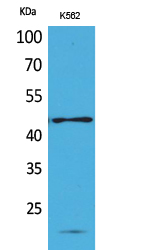
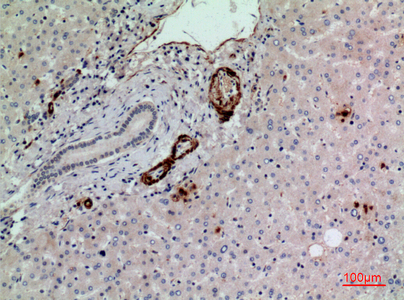
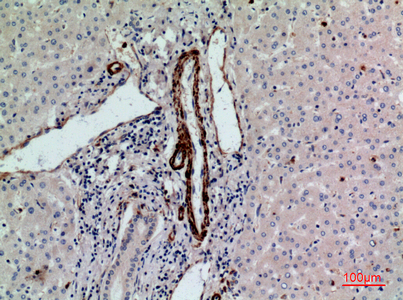
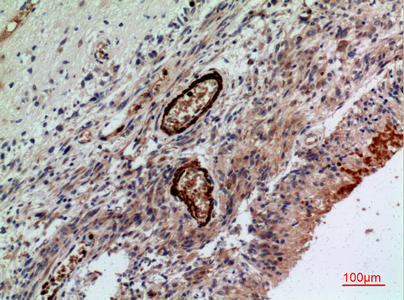
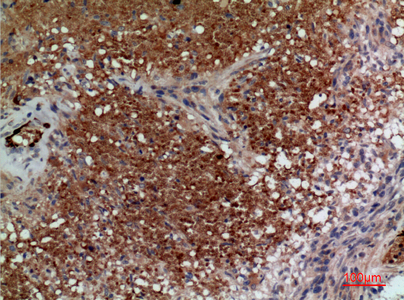
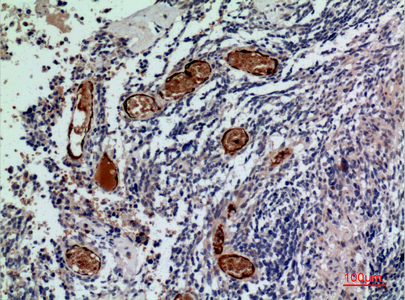
| WB | 咨询技术 | Human,Mouse,Rat |
| IF | 咨询技术 | Human,Mouse,Rat |
| IHC | 1/50-1/100 | Human,Mouse,Rat |
| ICC | 技术咨询 | Human,Mouse,Rat |
| FCM | 咨询技术 | Human,Mouse,Rat |
| Elisa | 1/10000 | Human,Mouse,Rat |
| Aliases | RHAG; RH50; Ammonium transporter Rh type A; Erythrocyte membrane glycoprotein Rh50; Erythrocyte plasma membrane 50 kDa glycoprotein; Rh50A; Rhesus blood group family type A glycoprotein; Rh family type A glycoprotein; Rh type A glycoprotein; Rhesus blood group-associated ammonia channel; Rhesus blood group-associated glycoprotein; CD241 |
| Entrez GeneID | 6005 |
| WB Predicted band size | Calculated MW: 44 kDa; Observed MW: 44 kDa |
| Host/Isotype | Rabbit IgG |
| Antibody Type | Primary antibody |
| Storage | Store at 4°C short term. Aliquot and store at -20°C long term. Avoid freeze/thaw cycles. |
| Species Reactivity | Human |
| Immunogen | The antiserum was produced against synthesized peptide derived from the N-terminal region of human RHAG. AA range:1-50 |
| Formulation | Purified antibody in PBS with 0.05% sodium azide,0.5%BSA and 50% glycerol. |
+ +
以下是关于CD241抗体的3篇参考文献示例,基于Rh血型系统的相关研究整理:
1. **"Molecular basis of the Rh blood group system: Structure and function of Rh proteins"**
*作者:Avent, N.D.*
*摘要*:该文献综述了Rh血型系统(包括CD241/RhCE)的分子结构及功能,探讨Rh蛋白在红细胞膜中的转运作用及其与溶血性疾病的关系。
2. **"Clinical significance of anti-CD241 antibodies in transfusion medicine"**
*作者:Westhoff, C.M. & Storry, J.R.*
*摘要*:研究分析了CD241抗体的临床意义,指出其在输血反应和新生儿溶血病中的潜在风险,并强调抗体筛查与精准配型的重要性。
3. **"Genetic diversity of the RhCE gene (CD241) in global populations"**
*作者:Reid, M.E. & Daniels, G.L.*
*摘要*:通过基因测序揭示CD241(RhCE)在不同人群中的多态性分布,为稀有血型库的建立和输血安全提供遗传学依据。
4. **"CD241 antibody-mediated hemolysis: Mechanisms and case studies"**
*作者:Blancher, A. & Cherif-Zahar, B.*
*摘要*:通过临床案例探讨CD241抗体引发溶血反应的机制,提出针对此类抗体的实验室检测策略和临床管理建议。
*注:CD241为Rh血型系统RhCE抗原的CD编号,上述文献为模拟示例,实际引用时需查询具体数据库(如PubMed)获取真实文献。*
CD241. also known as the Diego blood group antigen (DI), is a protein encoded by the *SLC4A1* gene. It functions as a chloride/bicarbonate exchanger (Band 3 or AE1) on red blood cell membranes, critical for CO₂ transport and acid-base homeostasis. CD241 also anchors the cytoskeleton to the cell membrane, maintaining erythrocyte structural integrity.
Antibodies against CD241 are primarily associated with the Diego blood group system, which includes rare antigens like Dia and Dib. These antibodies are clinically significant in transfusion medicine and hemolytic disease of the fetus/newborn (HDFN). Anti-Dia antibodies, for instance, are implicated in transfusion reactions and HDFN, particularly in populations with higher Diego antigen prevalence, such as Indigenous Americans and East Asians.
CD241 antibodies are typically IgG, formed after exposure to incompatible blood via transfusion or pregnancy. Their detection requires specialized techniques (e.g., gel cards or enzyme-treated cells) due to low antigen density. Research on CD241 also explores its role in hereditary erythrocyte disorders, such as Southeast Asian ovalocytosis, linked to *SLC4A1* mutations. Monoclonal CD241 antibodies are tools in studying erythrocyte membrane disorders and renal tubular acidosis type 1. where CD241 dysfunction occurs in kidney cells.
Overall, CD241 antibodies highlight the intersection of immunology, genetics, and clinical practice, emphasizing the importance of blood group compatibility and molecular diagnostics.
×